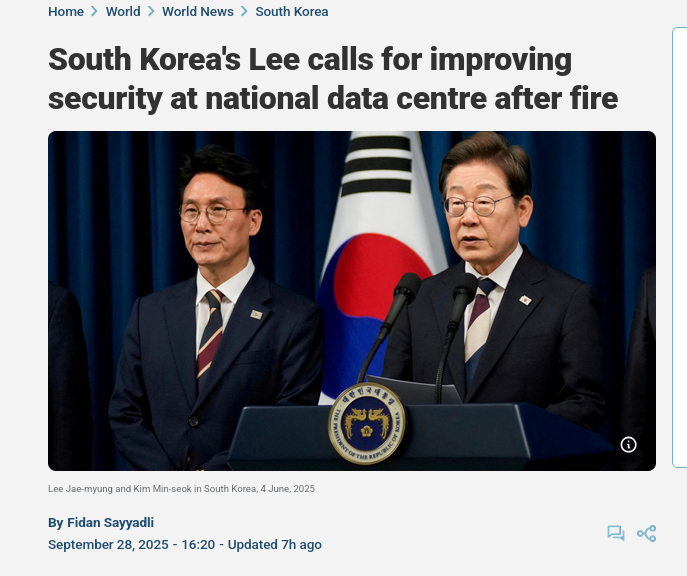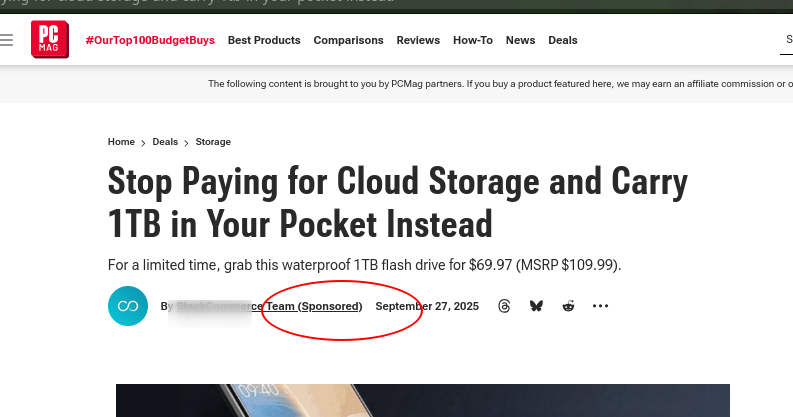Datacentres Aren't Reliable for Backups
Call it "Datacentres" or "Servers" or "the Cloud". Whatever it is (the term), with overlapping concepts and buzzwords, it's something stored far away and with some rare exception it just means you let someone else manage (or lose) your data. There are many articles - including several in recent days (see Daily Links) - about datacentres catching on fire. Of course data will be lost. Of course it happened before (famously in France). Datacentres owners won't compensate (not properly anyway) the many known victims. Service disruption isn't the main issue; there is long-lasting damage, some of it of sentimental rather than economic value.
"Oops, sorry!"
Many people in today's younger generations have truly lousy backup practices, if any at all. When I was 22 I gave a lecture at the Royal Eye Hospital about how to make backups. Doctors kept losing data. I was invited to speak there, as I was considered domain-knowledgeable and was considered good at making backups. Tonight I'm going to back up, yet again, many computers to my 8TB drive, the newest one of 4 external drives (there used to be more, but they 'retired'). There's a lot of critical information to replicate. The only time I lost data in recent decades (not years) it was on some server; some total buffoon - the so-called 'sys admin' at the University where I was an RA - deleted all the data on the server without telling anyone affected until after he had deleted (wiped) it. I had a more recent version of my code on there. The changes (days' worth) got lost.
That's what "Servers" or "the Cloud" are like. You're not in control; those who are don't value your data. Sometimes you can get locked out (a recent AWS story highlighted how bad this can get), sometimes things go wrong and they don't tell you until it's too late.
From my personal experience, people come to expect data loss. Many people only keep their data - notably photographs - on their phone and lose them when the phone breaks or gets lost. If they have some "cloud" account, then it harvests all their personal photos. How is that an actual solution (rather than an additional problem)? The solution should be backups, not mass surveillance.
Consider this: ("Stop Paying for Cloud Storage and Carry 1TB in Your Pocket Instead")
It is a "sponsored ad," an associate has noted, "but good point" made.
Carrying around your data is not a great idea. Your pocket is not safe storage and if you value your data, you'll protect it better.
People need to learn how to make air-gapped backups (a 'NAS' should have no IP address, or no "N"; nor should printers for that matter) and several copies of these. It's not expensive to do and it ought not take a lot of time. It can be automated. But they don't teach that in school. Instead they compel people to memorise menus (or bells and whistles) in proprietary software, i.e. software whose interfaces constantly change and those changes are mandatory.
Society is losing a lot of information, not just because slop blurs it away; bad practices cause immeasurable levels of permanent data losses each and every day. In many cases this leads to deep misery. Many people wrongly assume that the device/gadget they have will always work and almost always be with them. Until it stops. █


